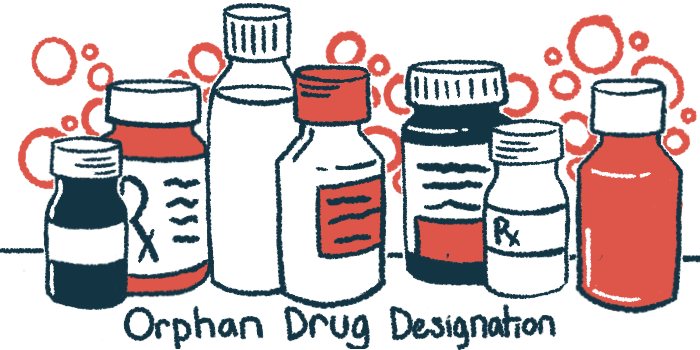
The U.S. Food and Drug Administration (FDA) has granted orphan drug designation to daraxonrasib, an oral therapy being developed by Revolution Medicines to treat pancreatic cancer.
The FDA gives this designation to experimental medicines designed to treat conditions affecting fewer than 200,000 people in the U.S. The goal is to provide additional economic incentives to companies investing in treatments for rare conditions, where the small number of patients can make it challenging to generate a profit. Among the perks is a guaranteed seven years of market exclusivity, free from generic competitors, if a therapy is ultimately brought to market.
“We are gratified the FDA has granted orphan drug designation to daraxonrasib for the treatment of pancreatic cancer, a devastating disease with limited therapeutic options and representing a large unmet medical need,” Mark A. Goldsmith, MD, PhD, chairman and CEO of Revolution, said in a company press release.
The designation comes a few months after the FDA granted daraxonrasib breakthrough therapy status, which is designed to speed the development of treatments for serious conditions that show promise in early clinical testing.
Treatment targets RAS proteins
Daraxonrasib is designed to inhibit the active form of RAS proteins, signaling proteins that help to control cell growth. In most people with pancreatic cancer, mutations lead to the overactivity of RAS proteins. By blocking RAS, daraxonrasib aims to inhibit cancer cell growth.
“RAS driver mutations are present in nearly all pancreatic cancer cases, underscoring the urgent need for innovative therapies that target this critical driver of disease progression,” Goldsmith said.
Revolution is sponsoring a Phase 3 clinical trial called RASolute 302 (NCT06625320) to test daraxonrasib in people with pancreatic cancer. The study aims to enroll about 460 adults with pancreatic ductal adenocarcinoma (PDAC), the most common type of pancreatic cancer, whose disease is metastatic — meaning it has spread outside the pancreas to other parts of the body — and who have previously received at least one line of standard treatment with chemotherapy.
Participants in the Phase 3 trial will be randomly assigned to treatment with either daraxonrasib or a standard-of-care chemotherapy regimen. The study’s main goals are to determine whether daraxonrasib delays disease progression and/or extends survival over up to three years of follow-up.
The RASolute 302 study is ongoing at sites across the U.S., Asia, and Europe. As of September, sites in Germany and Japan were still recruiting participants.
The company plans two more Phase 3 clinical trials for pancreatic cancer: one for first-line treatment in patients with metastatic PDAC and another for adjuvant treatment in patients whose tumors can be surgically removed.
Daraxonrasib is also being developed for other types of cancer, including non-small cell lung cancer and colorectal cancer.
The post FDA speeds development of oral pancreatic cancer treatment appeared first on Rare Cancer News.

